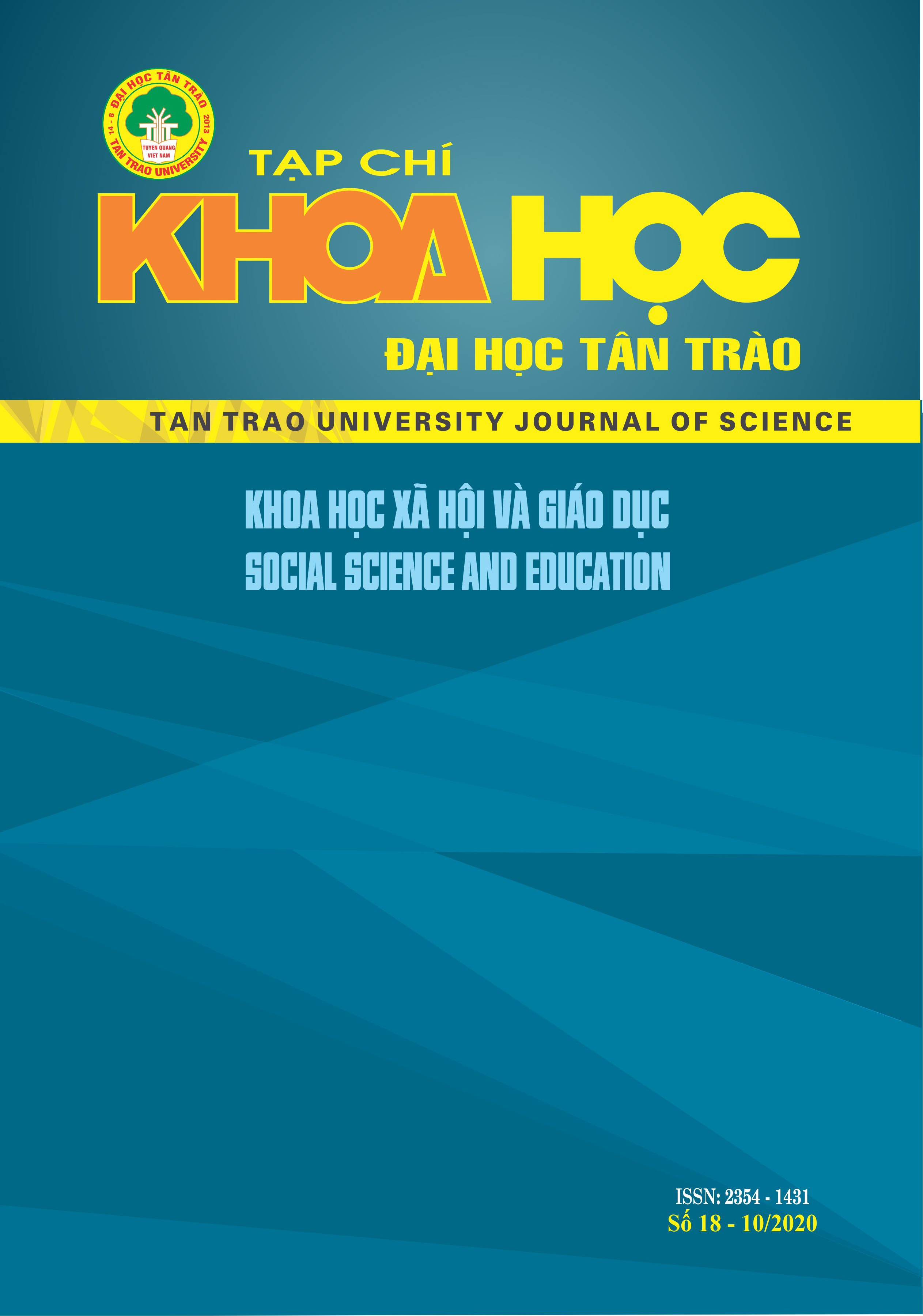TUYÊN QUANG VỚI VIỆC TẠO ĐIỀU KIỆN CƠ SỞ VẬT CHẤT, ĐẢM BẢO AN NINH CHO ĐOÀN ĐẠI BIỂU CÁCH MẠNG LÀO HOẠT ĐỘNG TẠI XÃ MĨ BẰNG (HUYỆN YÊN SƠN) TỪ NĂM 1950 - 1952.
DOI:
https://doi.org/10.51453/2354-1431/2020/411Từ khóa:
Tuyên Quang, Kháng chiến chống Pháp, Căn cứ cách mạng.Tóm tắt
Tuyên Quang là một tỉnh thuộc khu vực miền núi phía Bắc Việt Nam, giáp với các tỉnh Thái Nguyên, Phú Thọ, Vĩnh Phúc, Yên Bái. Trong lịch sử dựng nước và giữ nước của dân tộc Việt Nam, Tuyên Quang luôn được coi là vùng đất có vị trí chiến lược quan trọng về chính trị, kinh tế, quốc phòng, an ninh. Trong cuộc kháng chiến chống thực dân Pháp, Tuyên Quang trở thành căn cứ cách mạng chính yếu của Đảng, ngoài ra cũng là nơi bảo vệ an toàn cho đoàn đại biểu cách mạng Lào trong thời gian sống và hoạt động tại Việt Nam.
Tải xuống
Tài liệu tham khảo
1. Provincial Party Executive Committee Tuyen Quang (2001), History of Tuyen Quang province Party Committee, National Political Publishing House, Hanoi..
2. Yen Son District Party Committee (2014) Yen Son District Party Committee History, Su That Publishing House, Hanoi.
3. Party Committee of My Bang Commune (2017), History of the Party Committee of My Bang Commune (Period 1945-2015)
4. Tuyen Quang Museum (2014), Profile 02 / LLBSDT-BT Lao revolutionary relic in Lang Ngoi village, Da Ban, My Bang commune, Yen Son, Tuyen Quang (2nd time).
5. Quan Van Dung (2009), Tuyen Quang, the resistance capital, Ethnic Culture Publishing House, Hanoi.
6. Archives of Tuyen Quang police (2005), Chronicle of the People's Police of Tuyen Quang 1945-1954
7. Vietnamese Military History Institute - Ministry of Defense (2014) History of Vietnamese Military Thought - Volume IV, National Political Publishing House.
Tải xuống
Đã Xuất bản
Cách trích dẫn
Số
Chuyên mục
Giấy phép

Tác phẩm này được cấp phép theo Giấy phép Quốc tế Creative Commons Attribution-ShareAlike 4.0 .
Bài báo được xuất bản ở Tạp chí Khoa học Đại học Tân Trào được cấp phép theo giấy phép Ghi công - Chia sẻ tương tự 4.0 Quốc tế (CC BY-SA). Theo đó, các tác giả khác có thể sao chép, chuyển đổi hay phân phối lại các bài báo này với mục đích hợp pháp trên mọi phương tiện, với điều kiện họ trích dẫn tác giả, Tạp chí Khoa học Đại học Tân Trào và đường link đến bản quyền; nêu rõ các thay đổi đã thực hiện và các nghiên cứu đăng lại được tiến hành theo cùng một bản quyền.
Bản quyền bài báo thuộc về các tác giả, không hạn chế số lượng. Tạp chí Khoa học Tân Trào được cấp giấy phép không độc quyền để xuất bản bài báo với tư cách nhà xuất bản nguồn, kèm theo quyền thương mại để in các bài báo cung cấp cho các thư viện và cá nhân.
Mặc dù các điều khoản của giấy phép CC BY-SA không dành cho các tác giả (với tư cách là người giữ bản quyền của bài báo, họ không bị hạn chế về quyền hạn), khi gửi bài tới Tạp chí Khoa học Đại học Tân Trào, tác giả cần đáp ứng quyền của độc giả, và cần cấp quyền cho bên thứ 3 sử dụng bài báo của họ trong phạm vi của giấy phép.






